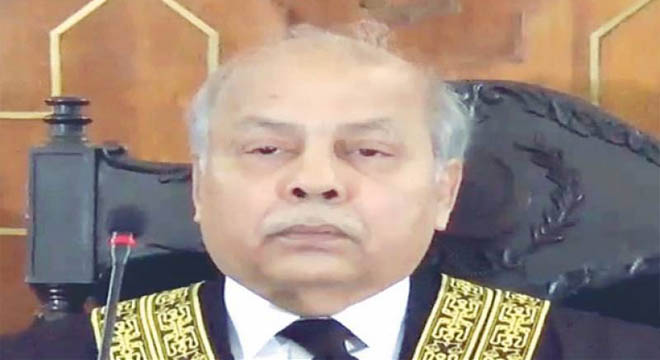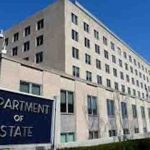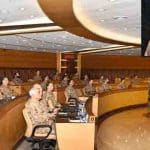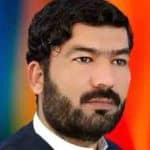ISLAMABAD – Attorney General for Pakistan (AGP) Khalid Jawed Khan Tuesday in the Supreme Court strongly opposed to hear the arguments of the Bar Associations in the reference regarding holding of the Senate elections either through “secret ballot” or “open ballot”.
The AGP said that the bars should have taken notice of the lawyers’ protest. They did nothing when some lawyers had attacked the Islamabad High Court Chief Justice Chambers, he added. He requested the Chief Justice of Pakistan to decide the reference by Friday (February 26), saying that afterwards the arguments on the Reference will merely be academic.
He opposed the petitions before a five-member bench of the apex court headed by Chief Justice of Pakistan Justice Gulzar Ahmed and comprising Justice Mushir Alam, Justice Umar Ata Bandial, Justice Ijaz ul Ahsan, and Justice Yahya Afridi during the hearing of the reference regarding holding of the Senate elections either through “secret ballot” or “open ballot”.
It is likely that the bench will reserve or announce a short order on the Presidential Reference today.
Chief Justice Gulzar Ahmed directed Senator Raza Rabbani, who is representing PPP, and appearing in his personal capacity, to complete the argument by Wednesday.
The court allotted Raza Rabbani, Farooq H Naek, counsel for Pakistan Peoples Party Parliamentarians (PPPP), Pakistan Muslim League-Nawaz (PML-N), and Sindh Bar Association half an hour to each for completing arguments on February 24. They were asked to file their synopsis. Jamiat-e-Ulema Islam-Pakistan and Jamaat-e-Islami have adopted the arguments of Raza Rabbani.
Earlier, during the proceedings, responding to a court query, Raza Rabbani said that proportional representation is a system and it is not for reflecting the party strength in the Senate. He added that Article 59(2) of Constitution provides for the proportional representation. He further argued that the system requires the party is represented in the Senate, but the political alliance and compulsion can alternate the mathematical number of the parties in the Senate. He said that it does not mean that an MP is involved in the corrupt practice if he has not given vote to another party.
Justice Gulzar asked from the counsel that you mean to say that if the strength of a political party is not reflected in the Senate as there is room to enter into alliance and there could be different matters.
Justice Ijaz asked from Rabbani that you are accepting that ordinarily the party strength needs to be reflected but if there is a distortion then the Election Commission of Pakistan (ECP) cannot look in to it.
Rabbani replied that the ECP can look the ballots but the secrecy of the vote mentioned in Article 226 should not to be disturbed.
The counsel argued that Section 167 of Election Act, 2017, deals with the corrupt practice that a person is guilty of the offence of corrupt practice if he is guilty of bribery, personation, exercising undue influence. He said that in Section 168 bribery is defined that a person is guilty of bribery, if he, directly or indirectly, by himself or by any other person on his behalf receives or agrees to receive or contracts for any gratification for voting or refraining from voting. He argued if it comes to the notice of someone that an MP has cast or refrained from polling vote for money then that MP has committed corrupt practice and there is punishment for it.
Justice Ijaz said that the corruption has many variations and there should be some post-election material to connect the corrupt practice. You have taken money for refraining to cast vote is also corrupt practice. He asked that is it necessary to have video of it.
Rabbani responded that what had happened to those videos which came to limelight and those videos are of 2018 elections but no action was taken. The Chief Justice questioned, “We do not like to have system that a legislator involved in corrupt practice be caught.”
Raza Rabbani said that constitution does not allow identification of voters.
Rabbani said that suppose an MPA has refrained from voting then how it would be determined that he has been involved in the corrupt practice. Rabbani contended that the basic question of the Reference, filed by the federal government, is whether Senate elections are under the Constitution or not? He said that it is not the objective of the Reference that there should be secret or open ballot for Senate election.
Later, the bench adjourned the hearing till today for further proceedings.
APP ads: Chief Justice of Pakistan Justice Gulzar Ahmed on Tuesday remarked that whatever was written in the law had to be followed in good faith.
During the course of proceedings of presidential reference seeking an opinion on open balloting for the upcoming Senate elections, CJP remarked that Implementation of the law with malicious intention causes problem.
Justice Ijaz said that the rules were framed under the Constitution. The status of the Rules for the Election Act was not constitutional, he added. He said that entire procedure of the Senate election had been in the law and not in the constitution. Later the court adjourned hearing on Presidential reference seeking an opinion on open balloting for the upcoming Senate elections till Wednesday.
Follow the PNI Facebook page for the latest news and updates.









